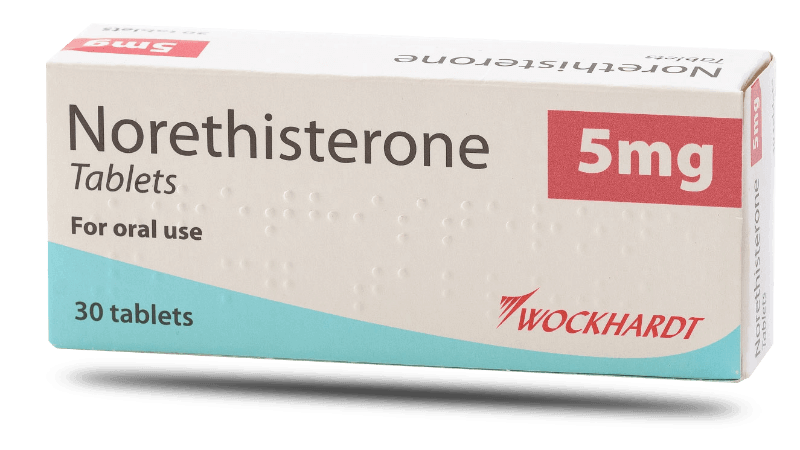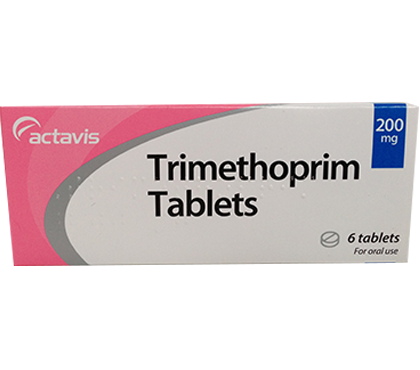Holidays often mean sun, sand, bikinis and lots of fun. Picture it, you’ve had that holiday booked for months and that new app on your phone counting down the days with a beautiful picture of the most serene looking beach. Or, it’s your best friend’s wedding coming up and you’ve had your outfit sorted for ages. Well, in these situations, periods just don’t fit into the equation….. and why should they? You really don’t want to be on your monthlies when you’re sunning yourself on the beach or wearing that perfect dress to the wedding of that most important person, I mean it would spoilt things wouldn’t it?
Well, there is a pill called Norethisterone which you can take to delay your period. You can buy it here from our website at Assured Pharmacy without the need to see your GP, it just involves filling in our health questionnaire online to ensure a safe experience for you. We supply in options of 7, 17 and 27-day delay packs. The dose is one tablet (5 mg) three times a day. You start three days before a period is due. It can be continued until you want to have a period. Your period will then normally begin 2-3 days after stopping it. It can be taken for up to 3-4 weeks if necessary. This is only for use on an occasional basis for special events, rather than something to be taken regularly.
Understanding how menstruation works can help you understand how your own cycle works. Your menstrual cycle is part of your body’s way of preparing for a possible pregnancy each month. Understanding how the process works is important since you can use this information to help to either get pregnant or avoid getting pregnant, to better manage any menstrual symptoms you are experiencing, and understand when there might be a problem.
The menstrual cycle includes several phases. The exact timing of the phases of the cycle is a little bit different for every woman and can change over time.
The first day of menstrual bleeding is considered Day 1 of the cycle. Your period can last anywhere from 3 to 8 days, but 5 days is average. Bleeding is usually heaviest on the first 2 days.
Once the bleeding stops, the uterine lining (also called the endometrium) begins to prepare for the possibility of a pregnancy. The uterine lining becomes thicker and enriched in blood and nutrients.
Somewhere around day 14, an egg is released from one of the ovaries and begins its journey down the Fallopian tubes to the uterus. If sperm is present in the Fallopian tube at this time, fertilization can occur. In this case, the fertilized egg will travel to the uterus and attempt to implant in the uterine wall.
If the egg was not fertilized or implantation does not occur, hormonal changes signal the uterus to prepare to shed its lining, and the egg breaks down and is shed along with lining. The cycle begins again on Day 1 menstrual bleeding.
![AdobeStock_167446642-[Converted]](https://www.assuredpharmacy.co.uk/blog/wp-content/uploads/2018/06/AdobeStock_167446642-Converted.jpg)
Norethisterone tablets belong to a group of medicines called progestogens. These work by acting on receptors in the body to mimic or exaggerate the effects of the natural hormone, progesterone. Progesterone is one of the naturally occurring sex hormones. It is secreted by the ovary as part of the menstrual cycle. It was first isolated in 1934 by Butenandt. Progestogens are synthetic forms of progesterone.
Progestogens were developed because progesterone could not be absorbed orally, although a method of processing progesterone via micro-ionising is now available.
Use is not limited to delaying your period. Norethisterone tablets may also be used to treat:
- or prevent abnormal or unexpected bleeding from the uterus
- the symptoms of a pre-menstrual syndrome which occur before a period including breast pain, headache, migraine, water retention and mood disturbances
- painful or heavy periods
- endometriosis
In women, progesterone is responsible for the development of a healthy womb lining (endometrium) that is necessary for pregnancy. The body produces progesterone at certain times of the menstrual cycle, causing the womb lining to flourish. If a fertilised egg does not attach to the womb lining by the end of the monthly menstrual cycle, the levels of progesterone in the body decrease. This causes the body to shed the womb lining (a menstrual ‘period’). If a fertilised egg successfully attaches to the womb lining by the end of the monthly cycle, progesterone levels in the body remain high. This helps maintain a healthy womb lining for the ongoing pregnancy.
Norethisterone mimics the effects of your natural progesterone and so can help regulate the healthy growth and normal shedding of the womb lining. Norethisterone is usually taken on selected days during the menstrual cycle, depending upon the disorder that is being treated.
Sale!
Norethisterone
£16.99 – £34.99
Norethisterone can be used to delay your period for between 7 and 27 days.
Select How Long You Need To Delay Your Period For
Description
What is it?
Norethisterone contains a hormone similar to the hormone progesterone which occurs naturally in the body and is also used in a number of contraceptive pills. It works by mimicking your body’s natural hormones and once it is taken regularly for 2-3 days will cause a sufficient increase in your body’s hormone levels to delay the arrival of your period.
How do I take it?
In order to delay a period, you take one Norethisterone tablet three times a day (every 8 hours) starting 3 days before the expected date of your period. You can use the tablets to delay your period for up to 20 days if necessary and your period will resume 2-3 days after stopping the tablets. If you do not take Norethisterone 3 days before your period is due then it may not work effectively to fully stop your period. This will not cause you any harm and may make your period lighter but it is less likely to stop your period altogether.
Norethisterone may not work for everybody and it is important to be aware not to take it if you are going on a long haul flight of more than four hours due to a small increased risk of a clot (similar risk as the contraceptive pill).
If you forget to take the tablets do NOT take a double dose to make up for the forgotten tablet. You must take no more than 15mg (three tablets) per day.
Contraception
Although it alters hormone levels, Norethisterone CANNOT be used as a method of contraception and will not provide protection against pregnancy. You must not take Norethisterone if you are pregnant, breastfeeding or likely to become pregnant.
If you are already using a hormonal method of contraception such as the contraceptive pill, implant or IUD, then Norethisterone is not suitable for you. If you are taking the combined contraceptive pill, running two packs of pills together without taking a break will delay your period.
If you do not have a period after stopping the tablets you must make sure you are not pregnant before taking more.
So, you’ve decided you’re taking norethisterone to delay your period and they’ve arrived in the post. But its only two days until your anticipated period! Can you still start taking them? Well, you could still take them but there is no guarantee that your period will be delayed, it could still start on time and run its course. It’s worth being clued up on your cycle and plan in advance to avoid disappointment.
Is norethisterone the only way to delay my period? No, if you take a combined contraceptive pill, you can delay your period by taking two packets back-to-back. How you do this will depend on which pill you take.
Examples are:
- monophasic 21-day pills, such as Microgynon and Cilest – you take a combined pill for 21 days, followed by seven days without pills when you have a bleed (period). To delay your period, start a new packet of pills straight after you finish the last pill and miss out the seven-day break. However, this isn’t always effective.
- everyday (ED) pills, such as Microgynon ED and Lorynon ED – you take a combined pill every day. The first 21 pills are active pills and the next seven pills are inactive or dummy pills, when you have your period. To delay your period, miss out and throw away the dummy pills, and start the active pills in a new packet straight away.
- phasic 21-day pills, such as Binovium and Logynon – the mix of hormones in each pill is different, depending on which phase you’re in. You need to take these pills in the correct order to have effective contraception. Ask your pharmacist which ones you can miss out to delay your period.
Taking your contraceptive pills in the ways described above won’t affect how they work as contraceptives.
If you’re not sure which pill you’re on or which pills in the packet to miss out, speak to your pharmacist, community contraception clinic or GP.
Avoid taking more than two packs without a break, unless your GP says you can – there’s a risk you could experience side effects, such as:
- unexpected vaginal bleeding caused by the lining of your womb shedding slightly
- bloating
- stomach pains
If you’re taking a progestogen-only contraceptive pill, you can’t delay your period by taking two packets back-to-back.
However, you may be able to switch to the combined contraceptive pill or take another medication to delay your period.
If you’re not sure which type of pill you’re taking, always check with your pharmacist or GP before taking two packets back-to-back. (6)
Is it really OK to not have my period? Most women are so accustomed to their menstrual cycle that the notion of not having a monthly period feels strange and unnatural. However, the reality is that not having a period can be perfectly safe in certain situations. It’s helpful to understand that the monthly bleeding that women experience while taking some forms of birth control, including the pill, patch or ring—is not the same as a natural menstrual period. Natural menstruation occurs as a result of the changes in hormones that are triggered by ovulation, or the release of the egg from the ovary, and the buildup of the uterine lining in preparation for pregnancy. When pregnancy does not occur, the body reduces the amount of those hormones that it makes. This “withdrawal” of hormones causes your body to shed that lining as your monthly period.
The hormones in the pill, patch and ring methods of birth control are similar to your body’s natural hormones. They stop ovulation from happening and prevent the uterus from building up a thick lining. When you take a week off from these methods (the inactive pill week, or the week with no patch or ring), this mimics the natural “withdrawal” of those hormones that occurs during a menstrual cycle. This is considered a “withdrawal bleed.”
Despite the many ways in which a woman can safely avoid her period, it is very important to know that sometimes not having a period is a sign that something is wrong. If you are not using hormonal birth control and you are naturally not having your period, you may have a condition called amenorrhea. “Primary” amenorrhea refers to a woman age 15 or older who has never gotten her period. “Secondary” amenorrhea refers to a woman who used to have regular periods in the past but then has stopped getting her period for more than three months in a row.
There are a lot of reasons why amenorrhea happens, such as hormone imbalances, stress, being overweight or underweight, use of certain drugs or medications, ovarian or uterine disorders and, of course, pregnancy. If you are not using hormonal birth control and you are not having your period, start by taking a pregnancy test. If the test is negative, make an appointment with your healthcare provider to find out what is going on. (7)
If you have any questions regarding norethisterone or any of the issues in this blog, our pharmacist is available to help via email or telephone.
References
- https://patient.info/health/periods-and-period-problems/delaying-a-period
- https://www.yourperiod.ca/normal-periods/menstrual-cycle-basics/
- http://www.medicines.org.uk/emc/product/5941/pil
- https://patient.info/doctor/progestogens
- https://www.netdoctor.co.uk/medicines/a8714/utovlan-norethisterone/
- https://www.nhs.uk/chq/Pages/830.aspx
- http://www.whallc.com/wellness-and-education/wellness-journal/lena-crandell-whnp-bc-ms/2014/04/02/is-it-really-ok-to-not-have-my-period
Assured Pharmacy is not liable for the currency or accuracy of the information contained in this blog post. For specific information about your personal medical condition, please contact our doctors or pharmacists for advice on [email protected].


![AdobeStock_167446642-[Converted]](https://www.assuredpharmacy.co.uk/blog/wp-content/uploads/2018/06/AdobeStock_167446642-Converted.jpg)








Reviews
There are no reviews yet.